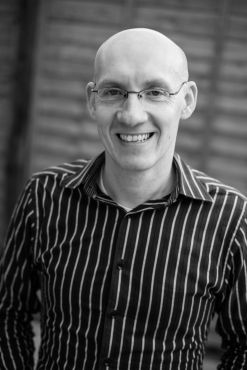You are here
- Home
- Mr Andrew Langford
Mr Andrew Langford
Professional biography
I am currently undertaking a PhD with the Open University, as part of the Grand Union Doctoral Training Partnership (GUDTP) with Oxford University and Brunel University. This is funded by the Economic and Social Research Council. My focus is on how bereaved men have experienced telephone support, and its influence on their resilience and vulnerability. I am a member of the Open Thanatology Group - the Open University's research and education group focused on death and grief related themes.
I have worked in the area of bereavement support for over 20 years. In parallel to my research interests, my most recent role is as national Clinical Director for Cruse Bereavement Support - the UK's largest bereavement support organisation. I am also an accredited counsellor/psychotherapist with the British Association for Counselling and Psychotherapy (BACP), holding a post-graduate diploma in integrative therapy. I work with clients privately on a variety of issues, although predominantly in the areas of grief, managing life transitions, low mood, anxiety, and self-regulation. I am also qualified as a clinical supervisor and a life coach. Additionally, I act in a consultancy role for organisations, to promote best practice around working with high levels of vulnerability (such as suicide, self-harm, bereavement, and trauma), managing emergency and high impact situations, and staff/volunteer wellbeing and resilience. Prior to and alongside this activity, I have worked at a front-line level and in senior posts in the voluntary sector for over 25 years, in the fields of homelessness, multiple needs, trauma, mental health and substance misuse. I also have an MSc with Bayes Business School, a part of City University of London, in Voluntary Sector Management.
I am a member of a number of professional groups, which have synergy with my work. These include the All Party Parliamentary Group (APPG) on Bereavement Support, and the Voluntary and Community Sector Emergencies Partnership (VCSEP) network's sub-group on mental health.
Research interests
My involvement in the research field is predominantly in the areas of sociology, counselling and psychology. I have an interest in mixed-method studies, bringing together data using quantitative and qualitative means, to achieve a greater understanding of people, organisations, a situation, or a given context. I apply a critical realist lens to my work, and am passionate about getting to the root of the causes of why things happen and why we behave, think, and feel the way we do.
My current focus is that of my PhD, which is to understand how short-term telephone support influences the resilience and vulnerability of bereaved men. I am in the process of investigating how the medium in which support is provided, impacts upon the experience of that support. Furthermore, I am interested in why men are often underrepresented as a client or customer group in mental and physical health and social care services, and what can be done to better engage men in the future.
Alongside grief and bereavement, I also have interests in the areas of suicide, self-harm, compassionate communities, resilience, and trauma. My most recent publications include work on clinical outcomes for telephone and in-person bereavement support, and an ethnographic account of grief through the lens of three established grief models. In process is a book chapter on working with trauma and grief.
Impact and engagement
I am committed to ensuring that the insight gained through research, practice reviews, and the lived experience of service users, changes services and the way we work with each other. This is so that we learn and grow, as individuals, organisations, and communities. With this in mind, here are some of the projects I've been involved with, to propagate learning and good practice:
- Working across organisations to pilot and establish a compassionate communities model, in the context of bereavement, so that people can feel more confident in having a kind conversation with someone when they are grieving. This is with a view of alleviating distress, and also creating a means of people supporting each other, so that there is less of a need to refer to formal support services.
- Establishing engagement groups of mental health professionals, clinical supervisors, and people with lived experience of bereavement in Cruse Bereavement Support, to discuss how services can change for the better, to serve individuals and society as a whole.
- In partnership with representatives from the Royal College of General Practitioners, establishing a conversation model to use when engaging with individuals and families who are grieving, so that they experience an immediate compassionate response and can be enabled to speak with others close to them, about how they are feeling.
- Working within a number of high profile finance sector organisations, to establish models of good practice around engaging with vulnerable customers presenting with comorbidities and financial issues, and a model of mutual support between front-line telephone agents and managers, dealing with high impact calls.
